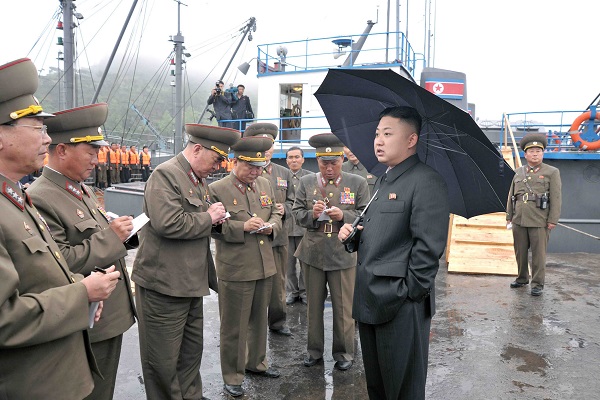Two flashpoints have emerged recently, threatening regional wars and pitting global powers against each other.
They happen to be run by accidental dynastic heirs, each representing a new generation of dictatorship whereby sons inherited jobs which they might never have wanted.
One is North Korea, which draws in the competing wills of Beijing and Washington with the balance of power in the Asia-Pacific. The other is Syria, where Russia and America are holding each other in check over influence in the Middle East.
Syria’s Bashar al Assad began his career as a competent junior ophthalmologist, training at the Western Eye Hospital in London, until he was plucked away in 2000 – after his brother’s sudden death – to learn the trade of Middle Eastern dictatorship instead.
North Korea’s Kim Jong-un, replaced a brother who was being groomed but then fell out of favour. Kim got the job in 2011 with the sudden death of his father. He was educated in Switzerland, but it’s reported that he dropped out after a couple of years.
He may have tried to show a modern face shortly after coming to power by bringing his young wife for a photo-op on a Pyonyang fairground ride.
But it didn’t last long. In time-honoured fashion, North Korea was soon threatening to destroy America.
Assad and Kim are managing dictatorial institutions in an era of far less clarity than that of their fathers – or in Kim’s case grandfather, too.
The ballast of ideology has been replaced by a technological anarchy that creates circular pressure points. Complaining citizens, wired up to Skype, Facebook and Twitter appeal to elected leaders in the West who then call for reform. This brings aspirations that spread by word of mouth to the poorest and most remote communities.
Long-held strategic interests – North Korea’s convenience as a buffer state with China, and Syria’s reliability at suppressing extreme Islam – melt away as we learned more and more about how appallingly these governments have treated their people.
The two dictatorships’ methods of survival have unfolded very differently.
Assad allowed himself to be courted by the West, and put in place some mechanisms for reform. That left him caught between the brutal institutions created by his father and his impatient citizens, creating a gulf of resentment that burst into civil war.
Kim has taken another path. He chose not to engage with the West, but to court his own domestic institutions, needed to retain power, and headed for his ropey nuclear weapons. He then ramped up the stakes not only with America, but also with South Korea and made clear, too, that he was no puppet of China.
In short, he turned North Korea into the nation-state suicide bomb.
Western rhetoric has personalised the power of Kim, Assad – indeed others, too – and given the impression that these leaders might share our values and ride through on a wave of democratic optimism.
But it’s now been proven that even if they did have a vision on coming to power, there is a limit to what a Swiss school drop-out and a trainee eye doctor can achieve with the inhuman institutions cemented into place by their fathers.
Humphrey Hawksley is a BBC foreign correspondent and author of Democracy Kills and Home Run. His website is www.humphreyhawksley.com and he tweets @hwhawksley






Comments